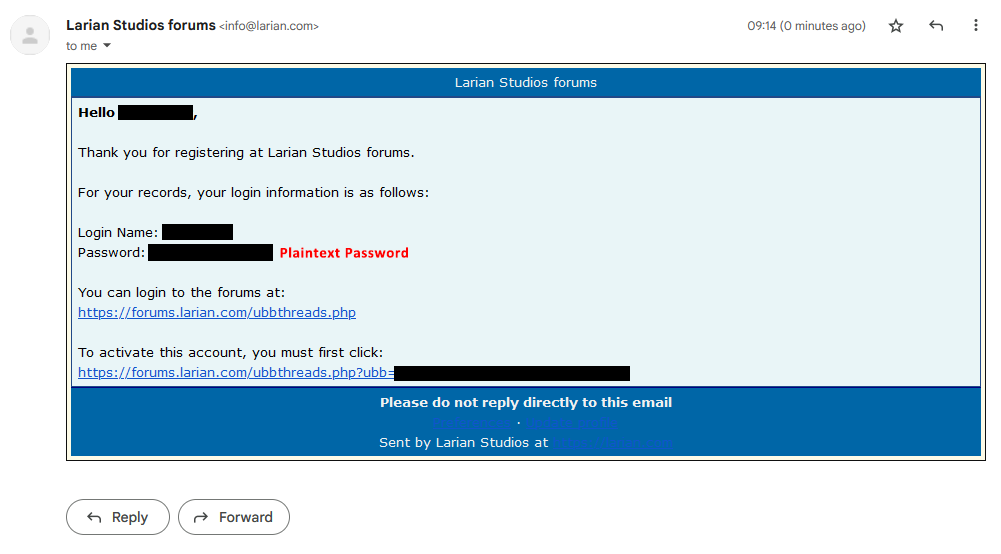this post was submitted on 28 Sep 2023
324 points (75.8% liked)
Games
32507 readers
1505 users here now

Welcome to the largest gaming community on Lemmy! Discussion for all kinds of games. Video games, tabletop games, card games etc.
Weekly Threads:
Rules:
-
Submissions have to be related to games
-
No bigotry or harassment, be civil
-
No excessive self-promotion
-
Stay on-topic; no memes, funny videos, giveaways, reposts, or low-effort posts
-
Mark Spoilers and NSFW
-
No linking to piracy
More information about the community rules can be found here.
founded 1 year ago
MODERATORS
you are viewing a single comment's thread
view the rest of the comments
view the rest of the comments

I just want to drop a reminder (to you specifically) that you don't have to use a cloud-based password manager. Roll your own.
Can I discourage rolling your own password manager (like using a text doc or spreadsheet) and instead recommend what you hopefully meant, self-hosting your own password manager?
I don't know what you're trying to say. I think it was safe to assume Salty probably meant the local-based keepass or something like that?
I wouldn't have immediately gone to text doc or spreadsheet. those aren't password managers.
The only annoying part about the modern world is that you want to have that keepass file synchronized between devices, at which point you either go down the path of something like Synchthing (not mainstream user friendly) or you just end up asking yourself "fine, what cloud service do I trust to not go looking at my files?"
I always synced my database manually either directly over usb, or wifi (KDE Connect). I have to admit that it's not really user friendly, but once I got used to it, it's no problem at all.
And uploading it to any cloud service should be fine as long as it's encrypted with a strong password. But that kind of defeats the point of an offline password-manager in my opinion.
I have mine in a self hosted Nextcloud instance, best of both worlds